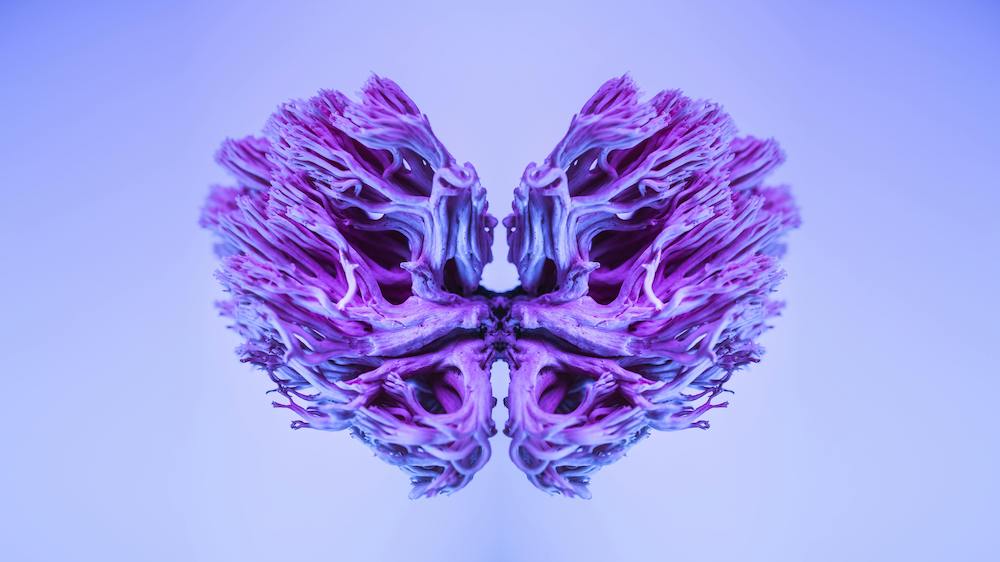Unlock Holistic Detox: The Power of Breathing for Better Health
Revitalise Your Body: Unleash 7 Powerhouse Detox Processes! Simple Tips for Instant Transformation, Regeneration, and Accelerated Healing.
Week 5 – The Lungs and tips to make them function even better!
Breathe Better, Live Stronger: Unlock the Power of Your Lungs!
Welcome to Week 5 of our holistic detox journey—this week, we’re focusing on one of the most vital and often overlooked detox organs: the lungs!
Every breath you take plays a crucial role in cleansing your body, delivering oxygen, and expelling harmful toxins. But modern air pollution, allergens, and even stress can compromise lung function, making it essential to support this incredible system.
In this article, we’ll explore:
✔️ How your lungs naturally detoxify and defend against toxins
✔️ Common threats to lung health (and how to avoid them)
✔️ Breathwork and exercises to expand lung capacity
✔️ Nutrients and lifestyle habits to keep your lungs strong
If you’ve ever struggled with shallow breathing, respiratory issues, or simply want to boost your energy and vitality through better oxygenation, this guide is for you. Let’s take a deep breath and dive in!
Week 5: The Lungs
Breathe Deep—It Will Transform Your Health!
Your lungs are more than just air filters—they are the gateway to vitality, resilience, and overall well-being. Every breath you take is an opportunity to detoxify, nourish your body with oxygen, and expel waste gases. But in today’s world, our lungs face an onslaught of pollutants, allergens, and chemicals that can compromise their function.
The lungs act as a frontline defence system against toxins. Inhaled air travels through the bronchial tubes, where tiny, hair-like structures called cilia work alongside mucus to trap and expel airborne particles, bacteria, and environmental pollutants. The alveoli—tiny air sacs within the lungs—play a critical role in oxygen exchange, ensuring our blood is oxygenated while expelling carbon dioxide.
How to Protect & Support Lung Health
To support optimal lung function, clean air is essential. Reducing exposure to pollutants like tobacco smoke, mould spores, synthetic fragrances, and industrial fumes can prevent unnecessary stress on the respiratory system.
✅ Use air-purifying plants (e.g., peace lily, snake plant) to improve indoor air quality.
✅ Invest in an air purifier if you live in a high-pollution area.
✅ Spend time in nature—seaside, forests, and mountains provide cleaner air.
Regular movement and breathwork techniques enhance lung capacity and efficiency. Cardiovascular exercise strengthens the lungs, while conscious breathing exercises—such as diaphragmatic breathing or alternate nostril breathing—help regulate oxygen intake and support detoxification.
💧 Hydration also plays a crucial role in lung function—ensuring the mucus lining in your respiratory passages remains fluid and effective in capturing toxins before they reach deeper lung tissues.
Nutrients That Support Lung Health
Your lungs thrive when supported with key nutrients:
🍣 Omega-3 Fatty Acids – Have anti-inflammatory properties that help reduce inflammation in the airways, promoting smoother breathing.
🍊 Antioxidants (Vitamins C & E) – Protect lung tissue from oxidative stress, helping to maintain long-term respiratory health.
💪 Magnesium – Supports muscle function, including the muscles involved in breathing, reducing the risk of tightness or spasms in the airways.
Tips for Keeping Your Lungs Fit and Healthy
✅ Breathe Through Your Nose – Nasal breathing filters, warms, and humidifies air, reducing lung irritation and infection risk.
✅ Practice Breathwork – Techniques like diaphragmatic breathing and box breathing improve lung capacity and oxygen exchange.
✅ Meditate & Reduce Stress – Chronic stress increases inflammation; meditation calms the nervous system, benefiting lung function.
✅ Stay Hydrated – Water keeps the mucosal lining of the lungs thin, making it easier to expel toxins.
✅ Move Your Body Daily – Even walking strengthens respiratory muscles and improves lung efficiency.
✅ Avoid Pollutants & Toxins – Minimise exposure to smoke, chemicals, and indoor air pollutants by using air purifiers or ventilating spaces.
✅ Cold Exposure & Lung Expansion – Controlled cold water immersion (like sea dips) encourages deep breathing and lung resilience.
✅ Support Your Microbiome – A diet rich in fibre and fermented foods supports gut-lung axis health, reducing inflammation.
✅ Sing or Hum Regularly – Vibrations stimulate the vagus nerve and improve lung function while helping clear mucus.
✅ Posture & Lung Expansion – Good posture opens the lungs, minimising shallow breathing habits.
✅ Salt Therapy & Steam Inhalation – Helps clear mucus and supports respiratory function, especially for those with congestion or asthma.
✅ Laugh Often! – Deep laughing expands the lungs, increases oxygen intake, and strengthens respiratory muscles.
Let’s Go Deeper into Each Element
Breathe Through Your Nose
Nasal breathing is the body’s natural filtration system, designed to protect and optimise lung function. The tiny cilia (hair-like structures) and mucous membranes in your nasal passages trap dust, bacteria, and pollutants before they reach your lungs. This natural defence also humidifies and warms the air, reducing irritation and dryness in the respiratory tract.
Mouth breathing, on the other hand, bypasses these defences, allowing dry, unfiltered air to enter the lungs, increasing exposure to pathogens and irritants. Over time, this can contribute to respiratory infections, asthma, and sleep-disordered breathing (such as snoring or sleep apnea).
Practice Breathwork
Your breath is a powerful tool for optimising oxygen exchange, strengthening lung function, and supporting detoxification. Breathwork techniques can clear stagnant air, increase lung capacity, and regulate stress responses.
Breathwork techniques to try:
- Diaphragmatic Breathing– Strengthens the diaphragm, prevents shallow breathing, and enhances endurance.
- Box Breathing– Helps control the breath, reduces anxiety, and expands lung capacity. (Inhale, hold, exhale, hold for equal counts.)
- The Wim Hof Method– Deep, rhythmic breathing combined with cold exposure boosts oxygenation and lung resilience.
Meditate & Reduce Stress
Stress and lung function are deeply connected. Chronic stress leads to shallow breathing, increased inflammation, and poor oxygen intake. Meditation activates the parasympathetic nervous system (rest-and-digest mode), encouraging deeper, more rhythmic breathing.
By pairing meditation with breath awareness, you train your body to take slower, deeper breaths, leading to improved respiratory function and greater overall well-being.
Stay Hydrated
Your lungs are 83% water—and hydration is essential for keeping them clear and functioning optimally. The mucosal lining in the airways needs moisture to trap and expel toxins effectively. Earthing supports cellular hydration, so whenever you can, get your bare feet on the earth.
When you’re dehydrated:
🚫 Mucus thickens, making it harder to clear irritants.
🚫 Coughing becomes less effective at removing debris.
🚫 Air passages become irritated, increasing inflammation.
When you’re well-hydrated:
✅ Mucosal linings stay thin and efficient at capturing toxins.
✅ Cilia (lung filters) function optimally, sweeping out debris.
✅ Oxygen exchange remains smooth and efficient.
Move Your Body Daily
The lungs thrive on movement. Regular physical activity expands lung capacity, strengthens respiratory muscles, and improves oxygen absorption. Sitting for long periods restricts lung expansion, leading to shallow breathing and reduced oxygen intake.
Best Movements for Lung Health:
- Brisk Walking(30+ minutes daily) – Boosts lung capacity and oxygen flow.
- Swimming– Encourages deep, controlled breathing while strengthening the lungs.
- Yoga & Stretching– Expands the diaphragm and ribcage, preventing lung restriction.
Avoid Pollutants & Toxins
Your lungs interact with the external environment 24/7, meaning what you inhale matters. Airborne pollutants, cigarette smoke, and household chemicals can damage lung tissue over time.
🚫 Common Toxins to Avoid:
- Tobacco Smoke & Vaping– Irritate and reduce lung capacity, and lowers respiratory immunity.
- Synthetic Fragrances– Found in air fresheners, candles, and cleaning sprays, these contain volatile organic compounds (VOCs) that damage the lungs.
- Indoor Dust & Mould Spores– Can trigger inflammation and respiratory issues.
Cold Exposure & Lung Expansion
Cold water immersion, like sea dipping or ice baths, forces the body into deep, controlled breathing. This expands the lungs and strengthens respiratory muscles.
Cold exposure also stimulates the vagus nerve (in suitable conditions and depending on the individual NS), helping regulate inflammation, stress, and breath control. Even a 30-second cold shower can build lung resilience over time.
Support Your Microbiome
The gut-lung axis is an emerging area of research showing that gut health directly influences lung function. A diverse microbiome can help regulate inflammation and reduce respiratory conditions like asthma and bronchitis.
🚀 Best Foods for Gut-Lung Health:
- Prebiotic & Probiotic Foods– Kefir, sauerkraut, kimchi, and yoghurt support lung-friendly bacteria.
- Fibre-Rich Foods– Whole grains, beans, and vegetables can reduce lung inflammation.
Sing or Hum Regularly
Singing and humming create vibrations in the lungs, stimulating the vagus nerve and improving oxygen exchange. These practices also help clear mucus from the airways while naturally expanding lung capacity.
Posture & Lung Expansion
Poor posture compresses the diaphragm and limits airflow. Sitting hunched over reduces oxygen intake and restricts lung expansion.
Salt Therapy & Steam Inhalation
Salt therapy (halotherapy) involves inhaling microscopic salt particles, which can reduce inflammation and clear lung mucus. Steam inhalation with essential oils like eucalyptus can also help clear airways and improve breathing.
Laugh Often!
Laughter engages the diaphragm, strengthens respiratory muscles, and forces out stale air, replacing it with fresh oxygen. It also reduces stress hormones like cortisol, which negatively impact lung function.
Actions for Change!
Here are five simple but powerful actions you can take this week to support your lungs and overall vitality:
1️⃣ Commit to 5 minutes of deep breathing daily – Try diaphragmatic breathing or box breathing for oxygenation and lung expansion.
2️⃣ Drink at least 2L of water per day – Hydration supports lung mucus production, keeping airways clear.
3️⃣ Get outdoors for fresh air and movement – Even brisk walking helps expand lung capacity and strengthens respiratory muscles.
4️⃣ Declutter your air – Open windows, add air-purifying plants, and avoid synthetic air fresheners and chemical cleaners.
5️⃣ Sing or hum for a few minutes daily – Stimulates the vagus nerve, helps clear mucus, and improves lung function.
Next Week: The Skin.
Did you miss a week? Click the link below to revisit what you missed.
Holistic Services for Women
Are you looking to nurture your body and well-being with women-focused practices like yoga, massage, or yoni steaming?
This blog was co-created with my beloved Ocean, who specialises in women-centered healing. If you’re interested in exploring her offerings, click the link below to learn more:







